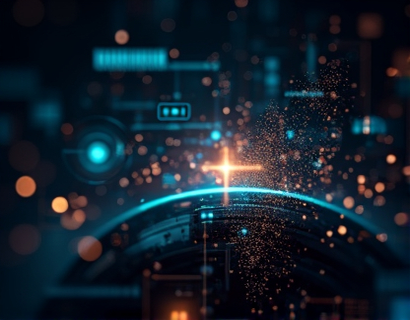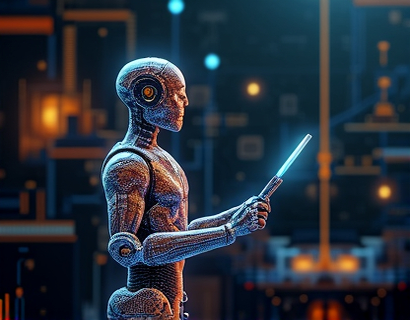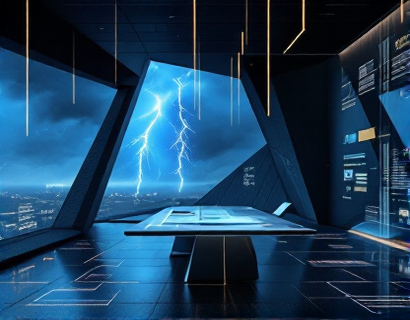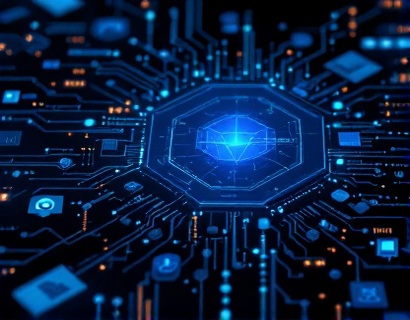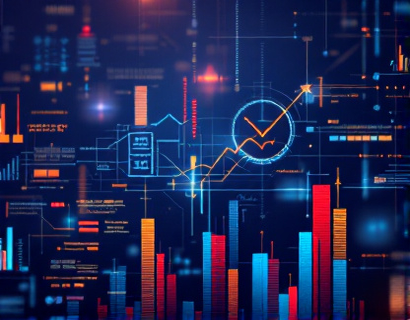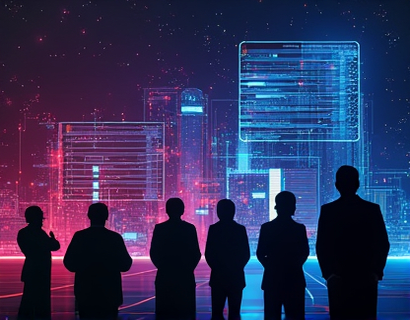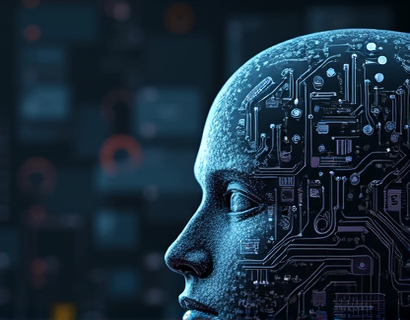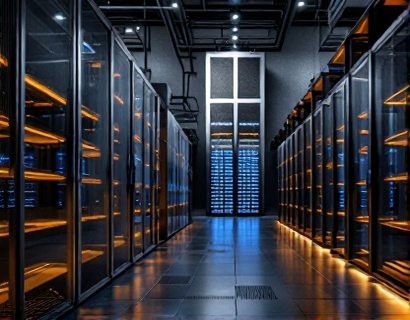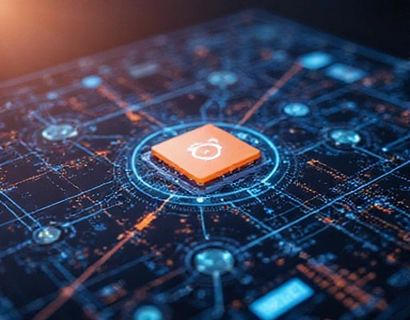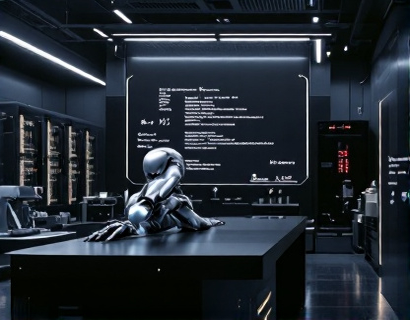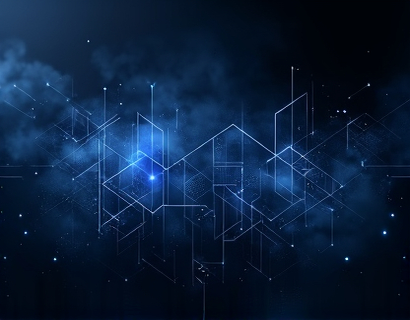Decentralized DAOs: Empowering Web3 Governance with Community-Driven Innovation and Transparency
In the rapidly evolving landscape of Web3, decentralized autonomous organizations (DAOs) stand as a pivotal force in redefining governance and innovation. These community-driven entities leverage blockchain technology to create transparent, inclusive, and efficient systems for managing Web3 protocols. This guide delves into the core principles of DAOs, exploring how they enhance collaboration, scalability, and protocol management, and discuss the broader implications for the future of decentralized technology.
Understanding Decentralized Autonomous Organizations (DAOs)
At their core, DAOs are organizations governed by rules encoded on a blockchain. These rules dictate how the organization operates, including decision-making processes, fund management, and member participation. Unlike traditional organizations, DAOs do not rely on a central authority or hierarchical structure. Instead, they operate through smart contracts, which automate and enforce the organization's rules and protocols.
The term "decentralized" emphasizes the distribution of power and control among members. In a DAO, decisions are made collectively by token holders or members, ensuring that no single entity has monopolistic control. This decentralized approach fosters a more democratic and equitable governance model, aligning with the core values of the Web3 ecosystem.
Enhanced Collaboration Through DAOs
One of the most significant advantages of DAOs is the enhancement of collaboration among community members. By removing traditional barriers to entry, DAOs enable individuals from diverse backgrounds to contribute to the development and governance of Web3 protocols. This inclusivity leads to a richer pool of ideas and solutions, driving innovation and creativity.
DAOs facilitate collaboration through various mechanisms. For instance, community forums and discussion channels built on blockchain platforms allow members to engage in real-time conversations. Proposals and discussions are recorded on the blockchain, ensuring transparency and accountability. This open environment encourages active participation and fosters a sense of ownership among members.
Moreover, DAOs often implement decentralized voting systems, enabling members to vote on critical decisions. These systems use smart contracts to tally votes and execute the chosen outcomes automatically. This process not only streamlines decision-making but also builds trust, as the results are immutable and verifiable.
Scalability in DAO Governance
Scalability is a crucial aspect of DAO governance, especially as the Web3 ecosystem continues to grow. Traditional centralized systems often struggle with scalability, leading to bottlenecks and inefficiencies. DAOs, however, are designed to scale organically through their decentralized nature.
One key factor in the scalability of DAOs is the use of layer 2 solutions and sidechains. These technologies offload transactions from the main blockchain, reducing congestion and lowering transaction costs. This allows DAOs to handle a larger number of transactions and member interactions without compromising performance.
Additionally, DAOs can implement modular architectures, where different components of the organization can scale independently. For example, a DAO managing a decentralized finance (DeFi) protocol can separate its lending, borrowing, and trading functionalities into distinct modules. Each module can be developed and scaled based on specific needs, enhancing overall efficiency.
Protocol Management and DAOs
Protocol management is a core function of DAOs in the Web3 space. DAOs play a vital role in the development, maintenance, and evolution of decentralized protocols. By decentralizing protocol governance, DAOs ensure that updates and improvements are driven by the community rather than a central authority.
Smart contracts are instrumental in protocol management within DAOs. They automate the execution of protocol rules and updates, ensuring that changes are implemented transparently and securely. For instance, a DAO managing a decentralized exchange (DEX) can use smart contracts to propose and vote on fee adjustments, liquidity provision incentives, and other critical parameters.
Moreover, DAOs enable continuous monitoring and auditing of protocols. Transactions and state changes are recorded on the blockchain, providing a tamper-proof audit trail. This transparency builds trust among users and stakeholders, as they can verify the integrity and fairness of the protocol's operations.
Case Study: Decentralized Governance in Action
To illustrate the practical application of DAOs in Web3 governance, consider the example of a decentralized autonomous community focused on developing a decentralized social media platform. This community operates as a DAO, with members contributing code, content, and resources.
The DAO uses a token-based voting system to make decisions on feature development, community guidelines, and fund allocation. Proposals are submitted to the community forum, where members discuss and vote on them. Once a proposal reaches the required threshold, the DAO's smart contracts execute the changes automatically.
This approach has led to rapid innovation and a highly engaged user base. The transparency and inclusivity of the DAO model have fostered a strong sense of community, with members feeling empowered to shape the platform's future. The scalability of the DAO's governance structure has also allowed the platform to handle increasing user traffic and interactions seamlessly.
Challenges and Considerations
While DAOs offer numerous benefits, they also come with challenges that need to be addressed. One significant challenge is the technical complexity involved in setting up and managing a DAO. Not all members may have the necessary expertise, which can hinder participation and decision-making.
To mitigate this, DAOs can provide educational resources and support to help members understand the underlying technology and governance mechanisms. Community-driven workshops and tutorials can bridge the knowledge gap and foster a more inclusive environment.
Another challenge is the potential for governance attacks, where malicious actors attempt to manipulate the DAO's decision-making processes. Implementing robust security measures, such as multi-signature wallets and decentralized oracle networks, can help mitigate these risks.
The Future of Decentralized Governance
As the Web3 ecosystem matures, the role of DAOs in governance and innovation is likely to become even more prominent. The principles of decentralization, transparency, and community-driven decision-making align perfectly with the goals of Web3, making DAOs a natural fit for the next generation of digital platforms and protocols.
Looking ahead, we can expect to see more sophisticated DAO frameworks that integrate advanced features such as automated governance algorithms, predictive analytics, and enhanced user interfaces. These advancements will further streamline the governance process and make DAOs more accessible to a broader audience.
Ultimately, DAOs represent a transformative shift in how we think about organization and governance in the digital world. By empowering communities and leveraging the power of blockchain, DAOs are paving the way for a more interconnected, resilient, and future-proof Web3 landscape.




